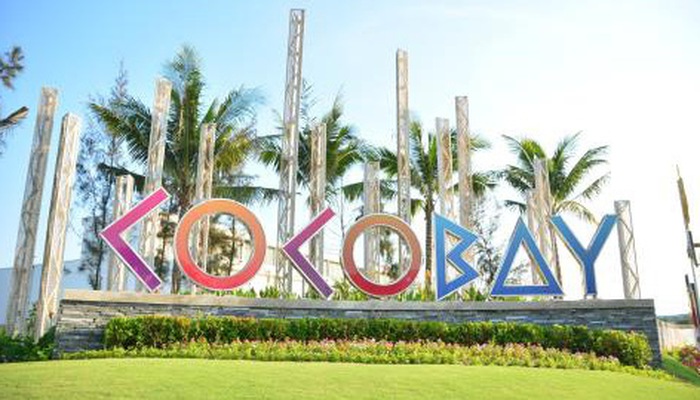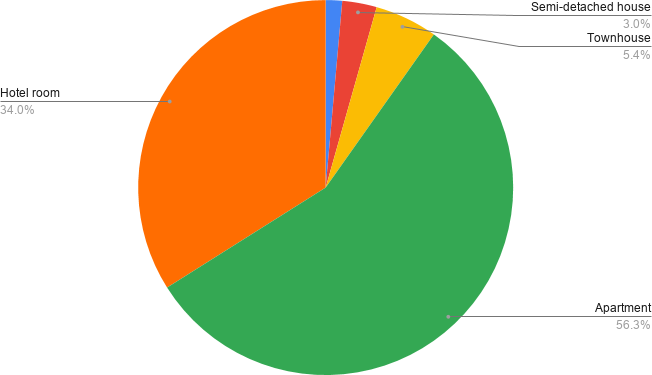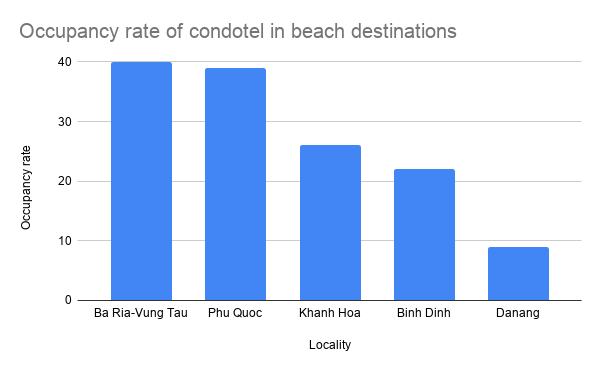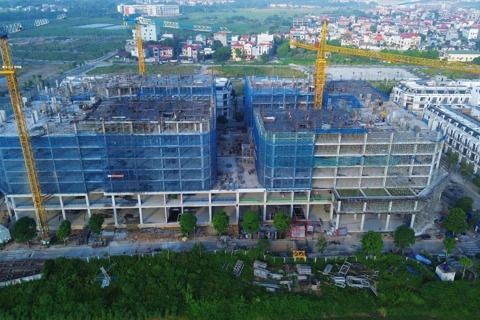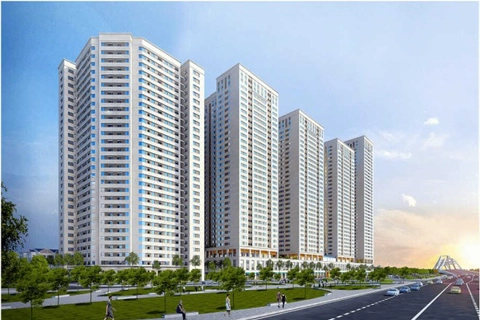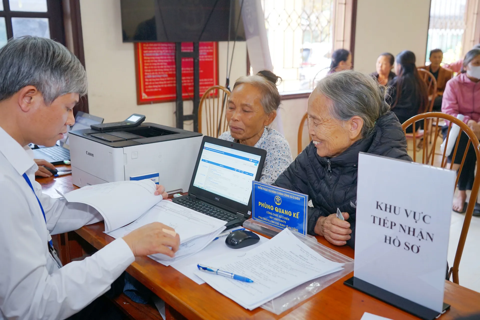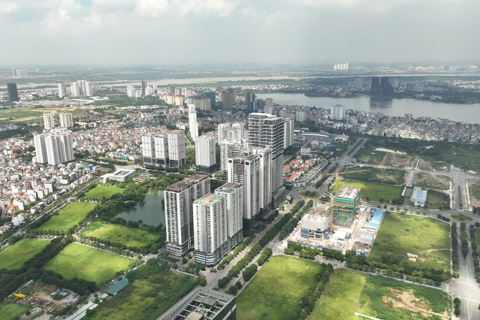Cristiano Ronaldo-advertised condotel complex in Vietnam faces financial collapse, domino effect feared
Some experts have said that the collapse of Cocobay may lead to a serial fall of other similar developments.
Developer of Vietnam’s central coastal city of Danang-based Cocobay complex, home to Cocobay Towers where football legend Cristiano Ronaldo said he had bought a condotel, a lodging that is a hybrid of a condominium and hotel, has announced that they are facing financial difficulties.
| The entrance of the Cocobay complex in Da Nang |
In a recent announcement, the investor of the VND14-trillion (US$617 million) project will stop paying yields from January 1st, 2020 to its clients which reach 12% per annum.
It means that the investor – Vietnamese property developer Empire Group – will break its promise made with its clients who have invested or bought condotels at Cocobay complex.
Located in Ngu Hanh Son district, Cocobay complex is advertised to form a luxury resort area offering different kinds of accommodation namely hotel, condotel, shophouse, shopvilla. The majority of secondary investors pour money into condotel, the ownership of which allows them to both stay at their own apartment for some specific period of time and earn money from leasing the apartment.
Cocobay project stirred the local real estate market when it was launched in 2016-2017 with a diversified range of segments and high profits pledged to offer goods returns to the secondary investors.
Covering an area of 51 hectares, the complex is designed to offer 10,000 rooms of three- to five-star standards with the majority being condotels. So far, nearly one third of the complex has been put into operations.
Under the latest approved planning, Cocobay has 55 shophouses and shopvillas, 57 villas, 120 semi-detached houses, 218 townhouses, 2,270 apartments, and 1,370 hotel rooms.
| Segments in Cocobay complex. Source: Baodatviet. Chart: Linh Pham |
Local experts attributed legal loopholes to Cocobay’s difficulties, explaining that unclear regulations on the condotel segment have troubled the operations of this kind and hindered clients from buying it, according to Baodatviet.
Some experts have said that the collapse of Cocobay may lead to a serial fall of other similar developments.
In reality, the condotels market has seen a standstill nationwide. The ratio of condotel inventories in each project hit 90% as of the second quarter 2018 while no new project was launched in the first quarter 2019.
There remained more than 20,000 condotels unsold as of end-2018, the figure might hit 30,000 by the end of 2019, according to the Vietnam National Real Estate Association (VNREA).
Meanwhile, the occupancy rate of condotels is around 30% in Phu Quoc Island, 40% in Ba Ria-Vung Tau province, 26% in Khanh Hoa, 22% in Binh Dinh, and 9% in Danang, according to real estate service company DKRA Vietnam.
| Occupancy rate of condotels at major beach destinations. Source: DKRA Vietnam. Chart: Linh Pham |

